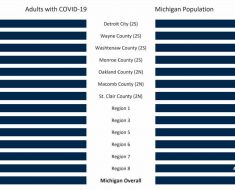NHS doctor on the dangers of smoking
We use your sign-up to provide content in ways you’ve consented to and to improve our understanding of you. This may include adverts from us and 3rd parties based on our understanding. You can unsubscribe at any time. More info
Chronic obstructive pulmonary disease (COPD) develops slowly over several years. As it’s so gradual many don’t realise they have it at first. Many Brits don’t develop any recognisable symptoms until they reach their late 40s and 50s. So are there any ways to spot the condition early?
COPD most commonly appears among smokers and often occurs in people exposed to fumes from burning fuel for cooking and heating in poorly ventilated homes.
The symptoms of COPD will get gradually worse and could make daily activities increasingly difficult.
COPD sufferers often experience periods where symptoms get suddenly worse.
This is known as a flare-up or exacerbation, it’s common to have a few flare-ups a year, these typically happen during the winter.
It is important to diagnose this condition as soon as possible as treatment can help slow its progression.


Early signs of COPD
Unfortunately, symptoms of COPD rarely appear until significant lung damage has happened.
Perhaps the clearest symptom of COPD is increased breathlessness, though at first this may only happen when exercising.
In the early stages of the condition, you might sometimes wake up at night feeling breathless.
DON’T MISS:
Lung cancer warning: Does a smoker’s cough put you at higher risk? [WARNING]
Call for smoke ban in the home to protect children [INSIGHT]
The three supplements to take for a healthy heart – and one to avoid [ANALYSIS]

You should not ignore this early symptom as it is the clearest indication you have COPD.
Another symptom of COPD is a persistent chesty cough with phlegm that does not go away.
You may be tempted to dismiss this at first, especially if it goes away, but this could point towards COPD so it shouldn’t be readily dismissed as a normal cough.
If you experience frequent chest infections this is not normal.
It could signal you have COPD or another health condition and you should see your GP.
Persistent wheezing is another symptom of COPD, as soon as you start to develop this you may want to consider seeing a doctor.
When should you seek medical advice?
Smokers are most at risk from, COPD, the NHS recommends you see your GP if you have persistent symptoms as listed above, especially if you’re over 35 and smoke or used to smoke.
These symptoms could also indicate other conditions such as asthma, bronchiectasis, anaemia and heart failure so it’s worth getting them checked out.
Testing for COPD is easy a simple breathing test can help determine if you have the condition.
Currently, there’s no cure for COPD but, the sooner treatment starts the less chance there is of severe lung damage.
Source: Read Full Article





